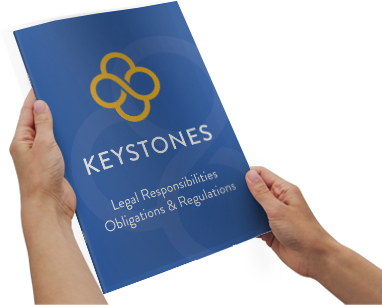A tenant not paying rent can happen to the most astute landlords and agents alike, it can be one of the most stressful periods of someone’s life.
With upward pressure on rents in the coming year, it’s worth thinking about your options in advance.
Usually, a tenant doesn’t rent a property with the intention of not paying rent, but once a month of rent is missed, they can get themselves into a deep hole of debt and it can become an uphill struggle, ultimately never being able to pay the landlord back.
The issue that most tenants do not realise is that this ‘mighty rich’ landlord (being sarcastic) is also living quite close to the breadline and uses his buy to let property as a pension, maybe to pay his existing home mortgage or help pay for a holiday each year. Failure to pay the landlord’s rent could mean a deep struggle and the potential for the landlord to lose not only his or her buy to let, but also their residential home.
To safeguard against this, we recommend that all our landlords get out a Rent Guarantee Insurance cover with the hope that they never use it, a bit like home or car insurance, it is a no brainier.
However, in the industry we say: “Expect the best, prepare for the worst.”
Here are some tips on what we recommend at Keystones and what we do should if we suffer in the event of a tenant not being able to pay the rent:
1. Give them a call
As simple as this from the first point of contact, the biggest issue I believe we come up against in the world is communication, we are not taught this. We tend to make assumptions without knowing. The easiest way to find out what is going on is to literally ‘pick up the phone’ and ask!
Do not email, do not text or voice message, call until they answer and have a conversation without judgement, become curious, you can still be direct without being rude.
Let them know that you have noticed the rent is late and when it will be paid. Ask them why it is late and that you take late quite seriously and try to find out if there are any issues by having a conversation.
If they do not answer their phone, my advice is to turn up at the house and knock on the door.
If something doesn’t ‘feel right’ then trust your judgement with it, there could be a problem.
Again, decipher the reasons and worst from there, seek to understand but be firm too.
2. Follow it up in writing – 3 days late
Again, you may have found a valid reason as to why their rent has not been paid and they may be getting paid later, however, keep it professional to protect yourself and to set the boat out. Follow it up in writing.
My advice is a letter of warning to state that the rent has not been paid, that they must adhere to the terms of conditions that is within their contract and pay their rent early or on time. We usually tell the tenant that we are following this up in writing should we have to get solicitors involved and debt companies involved. My advice is to be quite strong and set your stall out. I would do this when the tenant is about 3 days late with the rent.
3. 2nd Follow Up – Call, Email and Letter – 7 Days
If rent is not paid within 7 days, then I would be calling them again to find out what has happened, my advice is to be respectful and friendly. Ideally, you don’t want the tenants not answering the phone to you or responding to you. If you show compassion then they should be more likely to comply, again we are usually professional and tell the tenants that, unfortunately, we would need to follow our conversation up with an email and formal letter. Again, this is what our legal team advise us to do.
This way you are putting on pressure and building your case should you, unfortunately, have to use the court system and evict the tenants. The legal system in the UK does not like to make people homeless, therefore, you as a landlord would need to display that you have given your tenants every opportunity to pay and given them ample warning.
Your follow up letter should be a lot stronger here, but you should still display compassion for their situation. Revert them to their bills and offer to ‘help or assist them’ and come up with a plan against what their bills look like against paying the rent.
If you are a landlord going this alone, then I would recommend a solicitor to assist you, at Keystones, as professional letting agents, we include this in your monthly management fee.
4. 3rd Follow Up – Call, Email and Letter – 14 days
Again, a similar phone call to the above asking where the rent is and finding out where you go from here with the tenants. Ideally, this is where you need to start thinking about the inevitable factor that your tenants are getting themselves deeper into a hole and may not be able to fully pay the rent in arrears, so I would suggest a more formal conversation about the future with your tenants.
A few scenarios that you need to look at from the move in:
• Is your paperwork all in order on the tenants?
• Do you have a Record of all payments made?
• Have the tenants been served with the right certificates, How to Rent Booklet, Prescribed Information Document and Deposit Certificate?
• Do you have Rent Guarantee Insurance?
I personally would start by asking the tenants if they can move out of the property should they not be able to afford the rent from hereon in. It is much easier to make a clean break, draw a line and get the property back to a rentable state to re-let the property to someone who can pay.
If they have nowhere to go or refuse to leave, then point them in the direction of Universal Credit. Please be advised that the Citizens Advice Bureau will tell them NOT to leave the property, as technically if they remove themselves from the property then they are effectively making themselves homeless as opposed to being evicted.
Another option should the tenants look like they are refusing to leave is to speak to them about a payment plan.
We did this during Covid-19 and had a lot of tenants pay on a 70% payment plan for 3 months with the remaining 30% paid back over a period of 6 months, this worked very well and safe to say that at Keystones 100% of the tenants paid back their arrears.
The next steps to take over rent arrears
Rent arrears refers to when a tenant has missed rental payments or is late paying their rent. If your tenant is in rent arrears, then you are entitled to request the rent that’s due, escalating to an eviction or even taking them to court. The latter tends to happen if the tenant refuses to vacate the property or continues to miss their payments.
In order for a landlord to be successful in a court case, there needs to be evidence that the correct procedure has been followed – including applying to the court for a possession order which can instruct the tenant to pay rent arrears as well as court and legal fees.
If the tenant still refuses to leave the property or settle their debt, bailiffs will be sent in.
Rent Guarantee Insurance:
If you have rent guarantee insurance, my advice is to find out what the process is to make a claim. Please note to enquire with them and read the policy wording, all rent guarantee insurance companies would want to know that you have all of your paperwork in order such as tenant referencing checks, guarantor checks (if needed), IDs, Visas, Certificates issued to tenants upon move in, valid and up to date certificates, payment records, rent ledger and any other issues with maintenance and/or conversations, as well as the letters above.
You need to make sure that you are compliant should you have to go to court and get paid monthly from the insurance company. For more advice, read our blog ‘Is Rent Guarantee Insurance worth it?’
4th Follow Up – 21 days – in writing
This is the last point of contact you need to make in writing, the telephone should already have been exhausted and you need to gear yourself up for an eviction. At this point, everything needs to carry on by legal means. This is the full and final letter before a solicitor and Section 21’s or Section 8’s being served to the tenants. Once a tenant is 2 months in arrears you can legally start the eviction process.
Before serving the notices, make sure a solicitor has checked over the paperwork and advised you or taken over your case.
At Keystones we are estate and letting agents, not solicitors, therefore, we are not legal experts in this field nor claim to be.
If you have rent guarantee insurance with us it will also have legal cover too, which covers you for one of our recommended lawyers to start the eviction procedure on your behalf, since Keystones takes the insurance out upon your behalf as a landlord, we will also act as your agent through the eviction process and assist the insurance company with all the paperwork to hand.
Is there anything else that I can do?
Speak with your mortgage lender, the banks put some landlords on a payment holiday during Covid-19 and if you call them in advance, they can make special exceptions in exceptional circumstances such as this.
Lenders do not want landlords to be repossessed or anyone for that matter due to the fact it gives them a bad score with the government, so they will do what is necessary to help you.
If you are struggling with any of the above and want to talk to the experts, then please get in touch with the team at Keystones Property.
We have experience in this field and can help.
More from the Keystones learning hub
Keep updated with what's going on in your local area. Our latest news provides up-to-date information on everything regarding the local property market, for everyone including homebuyers, sellers, tenants, and landlords.
The Landlord Ombudsman & Renters Rights Bill – We Explain it All

3 June, 2025
It’s a great time to keep your UK Residential Buy to Let

20 May, 2025
Will the Romford Mosque increase property prices?

13 May, 2025

Come and see us face to face
Keystones are Open 6 days a week. Pop in, have a Tea or Coffee as we always have people on hand to help you.
Keystones Property
-
Keystones Property Collier Row
13 Clockhouse Lane, Collier Row, Romford, Essex, RM5 3PH, United Kingdom -
Email: [email protected]
-
Telephone: 01708 909 100





